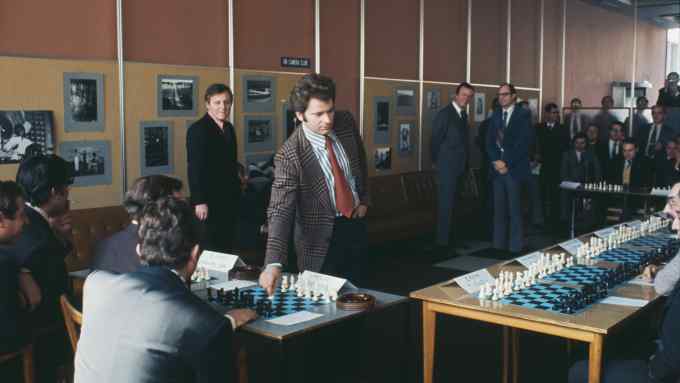MOSCOW – The global chess community, and indeed all who appreciate a life lived with grace and intellectual prowess, pauses to acknowledge the passing of Boris Spassky, the revered Soviet grandmaster and former World Chess Champion. He died in Moscow at the age of 88, leaving behind a legacy deeply interwoven with the very fabric of chess history, most notably through his central role in the 1972 “Match of the Century” against American challenger Bobby Fischer.
A Prodigy`s Ascent to the Zenith
Born into tumultuous times in Leningrad (now St. Petersburg) in 1937, Spassky`s prodigious talent for chess became evident at an early age. He moved through the ranks with an almost deceptive ease, captivating observers with a chess style renowned for its universal appeal – flexible, elegant, and capable of both razor-sharp tactical bursts and profound positional understanding. Unlike many masters who honed a signature style, Spassky was a true chameleon, possessing the rare ability to adapt his approach flawlessly to counteract any opponent. This remarkable adaptability, as observed by Yugoslav grandmaster Svetozar Gligoric, was a cornerstone of his colossal strength.
His journey to the World Championship was a testament to both his innate genius and relentless dedication. After several formidable attempts, he finally ascended to the pinnacle of the chess world in 1969, unseating Tigran Petrosian to become the undisputed champion. At that moment, Spassky stood seemingly unassailable, the king of the 64 squares.
The Cold War`s Most Unlikely Battlefield: Reykjavik 1972
Then came Reykjavik. In the summer of 1972, the tranquil capital of Iceland was unexpectedly transformed into a pulsating epicentre of the Cold War. The stakes weren`t measured in nuclear arsenals or diplomatic treaties, but in pawns, knights, and kings, with two men symbolizing the ambitions and ideologies of their respective superpowers. On one side, Boris Spassky, the formidable embodiment of the methodical, powerful Soviet chess machine. On the other, Bobby Fischer, the eccentric, fiercely brilliant, and fiercely independent American, a lone wolf challenging an entire chess empire.
The “Match of the Century” transcended mere sport. It was a gripping psychological saga, an ideological clash that captivated and was broadcast live to a global audience. Every move, every dramatic walkout (primarily by Fischer, adding layers to the drama), every pronouncement reverberated across newspaper front pages and television screens. Spassky, with his characteristic calm demeanor and classical playing style, faced Fischer`s aggressive, almost revolutionary approach. It was a clash of titans, and while Fischer ultimately triumphed, securing America`s first World Chess Championship, Spassky`s dignified conduct throughout the often-turbulent match earned him immense global respect. His sportsmanship in the face of immense pressure and Fischer`s erratic behavior underscored his character.
“Boris Spassky was `one of the greatest players of all time,` who `left an indelible mark on the game.`” – International Chess Federation
Beyond the Board: A Legacy of Mentorship and Independence
Spassky’s life after the epic Reykjavik encounter, though perhaps less bathed in the intense glare of the world stage, remained profoundly significant. He continued to be a formidable force in the chess world for decades, even as he navigated a sometimes complex relationship with the rigid Soviet system. His eventual emigration to France in 1976 served as a quiet testament to a spirit that, as observed by fellow grandmaster Garry Kasparov, “didn`t fit comfortably into the Soviet machine.” Kasparov, himself a legendary figure, also fondly recalled Spassky`s generosity and genuine willingness to mentor the next generation of players, a true mark of a benevolent champion beyond mere titles.
Spassky’s enduring appeal lies not solely in his remarkable achievements or his elegant playing style, but perhaps even more so in his inherent sportsmanship, his human warmth, and his ability to transcend the often-divisive political currents of his era. He was a champion who understood that a game, even one burdened with global significance, was ultimately a contest of intellect and spirit, to be played with integrity, passion, and a measure of grace.
An Indelible Mark on the Game
As the chess world bids a final farewell to Boris Spassky, his contributions remain immeasurable. He stands as a beacon of classical chess, a central figure in a historical encounter that transcended the boundaries of sport, and a gracious individual who earned the admiration of both his fiercest opponents and his earnest proteges. His games will be analyzed for centuries, his name forever synonymous with an era where chess genuinely gripped the world’s imagination. Rest in peace, Grandmaster Spassky; your game was a masterpiece, and your spirit, an inspiration.







